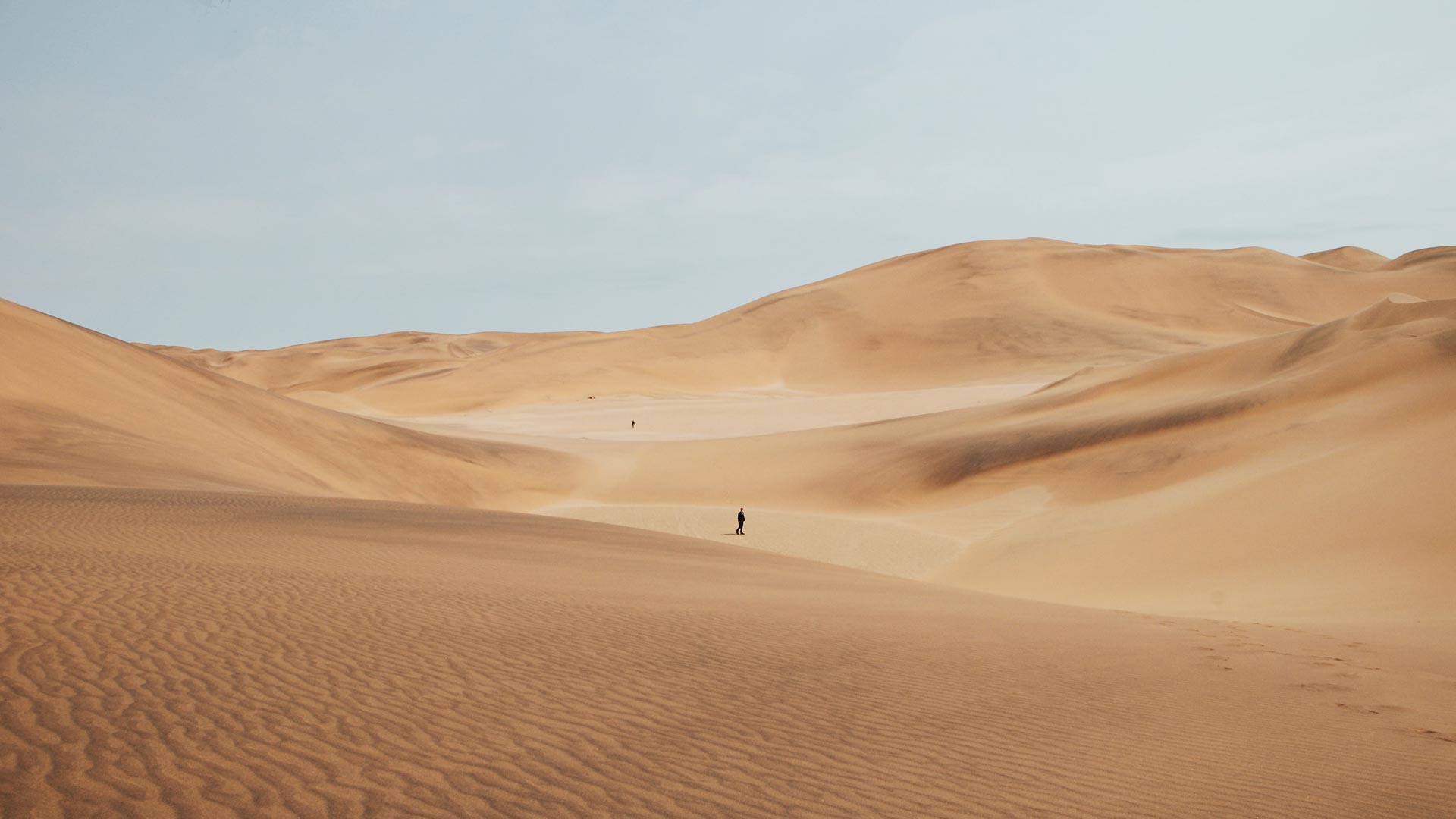In Lent we remember the 40 days in the wilderness that preceded the ministry of Jesus, and we reflect on our own seasons of wilderness—past or present, individual or communal. Of course, the collective realities of wilderness, hunger, and suffering were evident long before we reached Ash Wednesday. Here, Beau Denton (MA in Counseling Psychology, ‘17), Content Curator, writes about the Lenten invitation to not shy from those realities—a reminder of the kind of healing that only comes when we witness and acknowledge each other’s pain.
The first time I remember seeing people out and about with forehead smudges on Ash Wednesday, I was nearing the end of a brief stint living in Los Angeles after college. I didn’t even know what it was at first; I discreetly wiped my own forehead to let a woman at the library know she had something on hers. Later I saw it as I passed a bearded man on the sidewalk, again on a barista, then matching smudges on an older couple at the theater. It felt so vulnerable, so naked. They were wearing a mark of repentance for the world to see, which struck me as both brave and desperate.
Though much of my childhood had revolved around church, Lent was not a part of that faith. Like many evangelicals, we wrote off most of the rhythms of the church calendar as empty rituals and religious legalism. We got out of school early on Good Friday and broke out our pastel finest for Easter Sunday, but I remember little talk about Holy Saturday, let alone the larger Lenten movement that starts with the desperation of Ash Wednesday.
I had moved to LA in a fit of restlessness. It was a year after my dad died, and I had come unmoored as I learned that the rhetoric of my faith did not allow much room for anger, doubt, or loss. Death feels all but irrelevant when you think only of the empty tomb. This Lent-less worldview fit quite nicely with our American tendency to believe that we can buy, shoot, medicate, or elect our way out of our problems, but it offered little solace to a grieving son. My faith jumped ahead to resurrection and left me behind, isolated and abandoned.
So when I noticed the day-long pattern of smudges and recalled some dusty memory about what it might mean, I wanted in. It was not that I needed to be reminded of my smallness or my brokenness (though that is often the case). At the time I was well aware of my fragility and pain, but it lacked context. As I passed these strangers, the ashes on their foreheads said It’s okay, we’re broken too. We’re wandering like you, but here—join us. We can wander together for a bit.
I thought about that as I walked around the school recently, asking folks—those who would let me, considering the microphone in my hand—about their understanding of Lent. (You can hear the responses on “What Lent Means to You: A text.soul.culture Minisode.”) I thought about it again when Daniel Tidwell spoke of stardust and shared humanity as he led the Ash Wednesday service in our chapel. It’s the joyful surprise of a season known for desert and fasting: something transformative happens when suffering is witnessed and shared.
Maybe you, like me as a fatherless young man in Los Angeles, don’t need Lent to be reminded of your personal brokenness this year. And we probably don’t need it to remind us of our shared brokenness, either. Is there any doubt that we are, collectively, lost in a wilderness? Our nation’s appetite for violence seems without end, and stepping over others for the sake of personal comfort or advancement is a national pastime.
I do not believe that Lent arrives to evoke suffering for suffering’s sake. But it does insist that we not ignore or belittle suffering—our own or others’. Lent counters those who “dress the wound of my people as though it were not serious. ‘Peace, peace,’ they say, when there is no peace” (Jeremiah 6:14; modern translation, “All lives matter”). It reminds us that we are not alone when we suffer, and that Jesus preceded us into the desert and emerged with the clarity and authority of calling.
May we follow his example when we find ourselves drawn into the desert and tempted toward quick fixes or empty promises. May we listen to those—even if it’s a bunch of kids in Florida—who follow his example here in the wilderness, those who remind us that the way forward is not in hunkering down or closing our eyes or turning back, but in naming the realities of our woundedness, witnessing each other’s suffering and healing, and challenging those who benefit from cloaking rocks as bread.
And may we always, always, always remember—in our suffering, grieving, healing, erring, and returning—that we are not alone.

